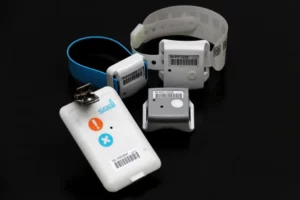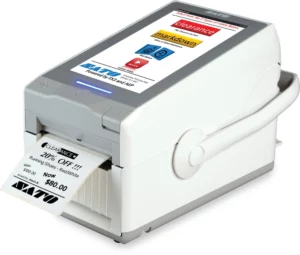What is Meant by “Entertainment Industry”
Any pastime that offers a distraction or allows individuals to entertain themselves during downtime is considered entertainment, which can also bring about delight, pleasure, and laughter. People can actively engage in an activity they find interesting, like playing sports as a pastime, or passively enjoy an entertainment service, like going to a performance.
The entertainment industry, which makes up a large portion of the tertiary segment of the economy, has several related sub-industries. The phrase is frequently used in the media to refer to the organizations in charge of creating and distributing entertainment for broad consumption.
The word “show biz” in particular refers to the performing arts that are economically successful, including musical theater, vaudeville, comedy, cinema, festivals, and musical events (concerts, gigs…). The term “entertainment industry” also encompasses all types of recreation, such as movies, TV, radio, plays, and live performances.
This being said, the subtypes of entertainment can be categorized as such:
- Exhibitions
A public event known as an exhibition features the display of artwork, sculptures, and other interesting artifacts. A showcase or example of a certain skilled activity that attracts attention or admiration is called an exhibition, and here are a few examples:
- Art exhibits
- Fairs
- Museums
- Trade shows
- Traveling carnivals
- Wax museums
- Live entertainment
According to statutory definitions, live entertainment is any event that is offered to a person or group of people who are present with the intention of enjoyment, leisure, relaxation, amusement, or other similar purposes. Examples of live entertainment are:
- Air show
- Circus
- Concert / music festival
- Fashion show
- Parade
- Mass-media entertainment
Any type of media used to communicate with wider audiences is referred to as mass media. The dissemination of information through mass media is crucial because it reaches a vast audience. The following are examples of ways to pass on entertainment that have grown in popularity throughout the years:
- Live entertainment
- Musical events (festivals / concerts)
- Movie theaters (cinemas)
How is this Relevant to RFID?
Well, one of the industries that can greatly benefit from radio-frequency identification technology is the entertainment industry. This is because each category of entertainment has its own challenges that can be overcome with modern technological solutions.
A variety of management issues, such as those that influence operational effectiveness, safety, and the guest experience, are faced by the entertainment industry.
But First, What is RFID?
The term “radio-frequency identification,” or RFID, refers to a method of gathering digital data from RFID tags or smart labels using radio waves. RFID is similar to barcoding in that data from a tag or label is collected by a device and saved in a database. No matter what industry your business is in, employing RFID technology has a number of benefits.
The following are only a few advantages of RFID technology:
- Facilitated inventory management and asset tracking
- More effective manufacturing control
- Improved traceability and quality
- Increased availability and accuracy of data
- Enhanced safety (maintenance)
- Monetary and time savings
To know more about RFID in detail and discover how the solution works, check out this article!
RFID in the Entertainment Industry
RFID has several beneficial uses in the entertainment industry, including access management and asset tracking, contactless selling (also known as “cashless management), attendee and schedule tracking, and sometimes even operation cycle monitoring. RFID will benefit the entertainment sectors in a variety of ways thanks to these functionalities:
Equipment surveillance
Organizations in the entertainment industry run their operations with the help of pricey, cutting-edge machinery. They generally have a large amount of equipment that is frequently moved about their location. Just think of the multiple lighting and sound systems necessary for a theater or a performance venue.
This gear may not only be easily lost or stolen, but it may also be simply forgotten or left behind once the show or event has come to an end. This chaos may be resolved with RFID. Entertainment businesses may trace the whereabouts of each individual piece of equipment by attaching an RFID tag to them, such as the ones we provide.
In this manner, it will be easier to locate equipment when it is required. RFID tags can also be used to keep track of a piece of equipment’s safety maintenance and testing records as well as monitor usage of the equipment.
Cashless management
The ability of RFID technology to enable a variety of cashless and paperless operations at amusement parks makes it special. People have already been choosing to buy admission tickets online instead of physically at the venue, and this is where RFID technology’s adaptability comes into play.
RFID tickets can be purchased as smartcards, ABS wristbands, key chains, tokens, and other trinkets. As a result, fewer employees are required, efficiency is increased, and the groundwork is laid for totally cashless and contactless experiences.
Access management
An RFID tag has chips that can be programmed individually and can be employed to open doors inside a building. This implies that admission to certain locations can be granted to different people. This restricts intruders from entering, prevents guests from having access to employee-only areas, and restricts personnel to the locations to which they are authorized. As a consequence, entertainment venues are safer and it is easier to achieve security and health goals.
Additionally, each time a person uses a tag to get access to a certain location, their actions are recorded. This may be used to keep track of employee movements and display the busiest regions.
Visitor experiences
The caliber of the experiences that customers have with entertainment venues determines whether or not they survive. Therefore, it’s critical to think of methods to make things smoother for them.
RFID technology may be used to enhance the interactive and customized nature of exhibitions. To guarantee that every promotional message is conveyed, event information can be digitally distributed to each patron using RFID wristbands.
At the closing of an event, all activities are registered in a database and correlated with each individual visitor, giving event organizers valuable data that can be used to get a better understanding of the weaknesses and strongpoints of the event in an attempt to host better ones in the future.
Here are a few instances where RFID technology can be used in different categories belonging to the entertainment industry:
- Museums and galleries
Numerous priceless masterpieces are kept at museums and galleries; some are on temporary exhibition, while others are lent from other institutions or even donated personally. They could be used for exhibition, sale, loan, restoration, or storage throughout their lifespan, therefore it’s important to preserve them properly and take good care of them. In order to assist museums and galleries handle these antiquities effectively, RFID in museums captures all relevant information about them, including descriptions, collection origin, and succession, to mention a few.
Furthermore, RFID tags and readers may be used to track an individual visitor’s progress through a museum, creating a record of responses to topical themes or a record of performance in interactive experiences.
- Festivals
A festival is a multi-day event that attracts thousands of attendees every day for entertainment and pleasure. Many individuals try to get into venues, and many fraudulent tickets are sometimes used, but RFID tags contain an unique identifier that makes it nearly impossible for duplicates or fraudulent tags to exist. This therefore dramatically decreases the likelihood that fake tickets get approved and thus make the event safer (since only RFID-approved individuals will be able to access the venue).
RFID readers can also scan many tags at once, which saves time and improves the consumer experience. Jugglers, musicians, aerialists, and other creative entertainers are assembled at a festival to enthrall the crowd.
RFID technology also contributes to the compilation of essential information, which you may use to manage your future activities. Ultimately, this might very well be beneficial in increasing revenues.
Which RFID Products Should I Buy?
Getting a comprehensive understanding of the task at hand or the issue at hand is the preliminary step. The varieties and quantity of equipment needed will begin to take shape as a result of a knowledge of the general business requirement, scope of work, budget, and other factors.
This article is, obviously, related to the entertainment industry. This falls under the category of asset tracking whose products come in a wide assortment of devices and gadgets, from active, passive, and BLE RFID tags to fixed and handheld RFID readers, as well as printers, encoders, and a software application. We know that this is overwhelming.
Take a couple of minutes to address the following questions to have a stronger grasp of your demands, jot down your answers, and schedule a meeting with us when you’re done to discuss which products work best for you! The questions are:
- What business issue or objective are you seeking to resolve or accomplish?
- What is your current approach to solving this issue?
- When will this application be deployed?
- What is your project’s budget?
- What assets or objects do you want to tag and track?
- What location do you have in mind for the reader, computer hardware, antennae, etc.?
- Do you need a COMPLETE solution (encompassing setup and software) or are you only seeking to buy tags and hardware and execute the solution yourself?
Specialized in the engineering and supply of smart systems, we are grateful to be the premium provider of Radio-Frequency Identification solutions in the Kingdom of Saudi Arabia and the Gulf region.
Using innovative technologies, our solutions are ready to revolutionize the way your company tackles daily operations. We aim to enhance and optimize your operations with the newest RFID technology.
Our solutions strive to make businesses a safer place, eliminating distractions and leaving room for them to solely focus on their business journey and success.
We envision a brighter, and much larger business era, where we help businesses optimize their operations using our revolutionary, cutting-edge RFID technology solutions and communication systems.
At Makamat, we expect nothing short of flourishment, success, and safety.
Final Thoughts
The use of RFID technology is a novel technique for entertainment venues to improve the visitors’ experiences. RFID tags are great for the environment since they remove paper waste and could be reused. In the long run, this lowers the expense of running entertainment venues while simultaneously providing visitors with a better experience.
RFID technology also has the ability to be leveraged to communicate with clients. If a customer scans an RFID tag on a sign or other point-of-sale item on the property with their phone, they may receive promotional materials, deals, or customer support information. A person entering a theater, for instance, could notice a poster advertising an upcoming performance. They only have to tap their phone to learn more about the movie or event being marketed if they wish to learn more about it.


